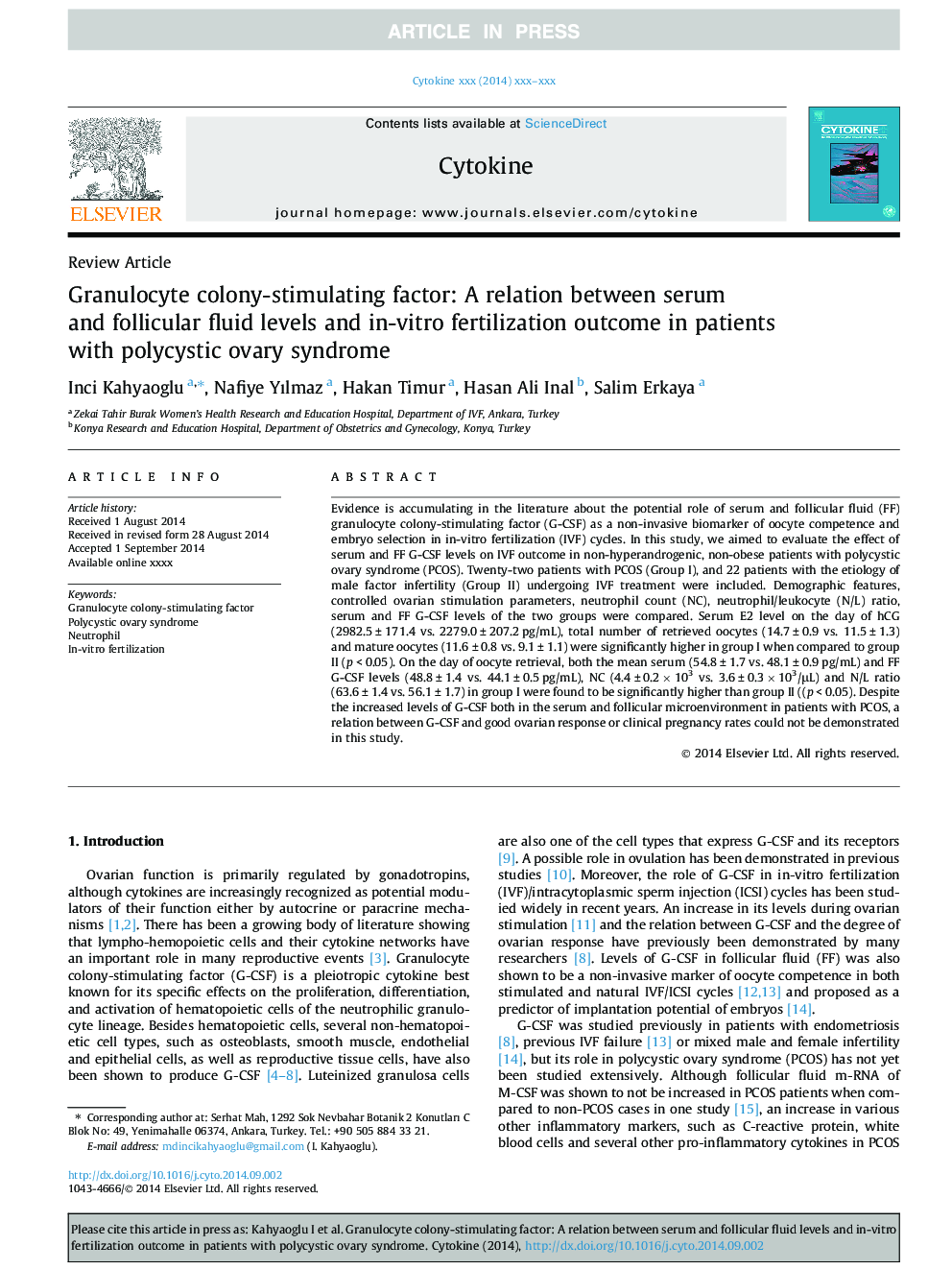| Article ID | Journal | Published Year | Pages | File Type |
|---|---|---|---|---|
| 5897040 | Cytokine | 2015 | 4 Pages |
Abstract
Evidence is accumulating in the literature about the potential role of serum and follicular fluid (FF) granulocyte colony-stimulating factor (G-CSF) as a non-invasive biomarker of oocyte competence and embryo selection in in-vitro fertilization (IVF) cycles. In this study, we aimed to evaluate the effect of serum and FF G-CSF levels on IVF outcome in non-hyperandrogenic, non-obese patients with polycystic ovary syndrome (PCOS). Twenty-two patients with PCOS (Group I), and 22 patients with the etiology of male factor infertility (Group II) undergoing IVF treatment were included. Demographic features, controlled ovarian stimulation parameters, neutrophil count (NC), neutrophil/leukocyte (N/L) ratio, serum and FF G-CSF levels of the two groups were compared. Serum E2 level on the day of hCG (2982.5 ± 171.4 vs. 2279.0 ± 207.2 pg/mL), total number of retrieved oocytes (14.7 ± 0.9 vs. 11.5 ± 1.3) and mature oocytes (11.6 ± 0.8 vs. 9.1 ± 1.1) were significantly higher in group I when compared to group II (p < 0.05). On the day of oocyte retrieval, both the mean serum (54.8 ± 1.7 vs. 48.1 ± 0.9 pg/mL) and FF G-CSF levels (48.8 ± 1.4 vs. 44.1 ± 0.5 pg/mL), NC (4.4 ± 0.2 Ã 103 vs. 3.6 ± 0.3 Ã 103/μL) and N/L ratio (63.6 ± 1.4 vs. 56.1 ± 1.7) in group I were found to be significantly higher than group II ((p < 0.05). Despite the increased levels of G-CSF both in the serum and follicular microenvironment in patients with PCOS, a relation between G-CSF and good ovarian response or clinical pregnancy rates could not be demonstrated in this study.
Keywords
Related Topics
Life Sciences
Biochemistry, Genetics and Molecular Biology
Endocrinology
Authors
Inci Kahyaoglu, Nafiye Yılmaz, Hakan Timur, Hasan Ali Inal, Salim Erkaya,
